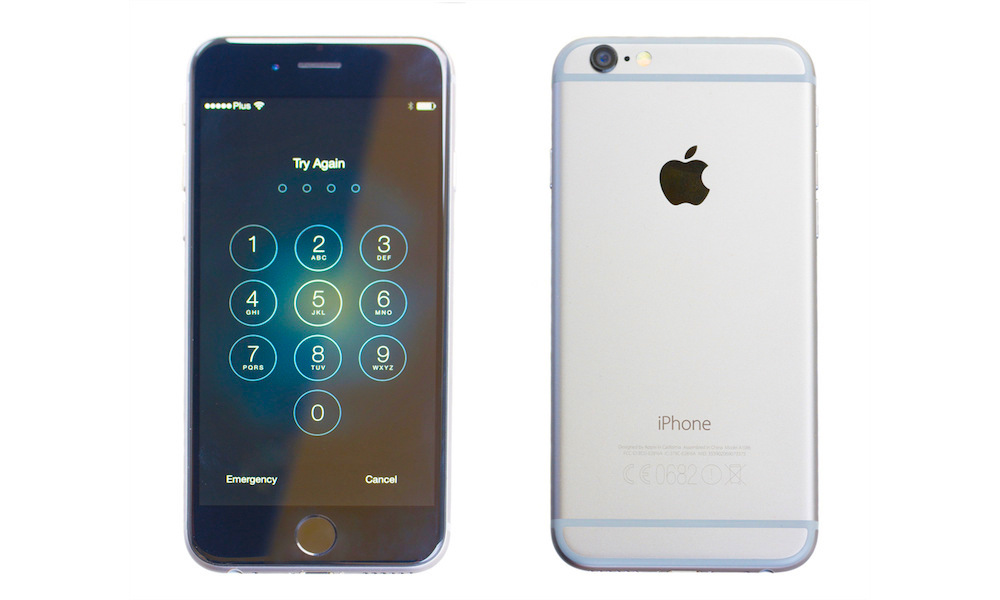Donald Trump, Edward Snowden, and the White House Respond to Apple’s Refusal to Create iPhone Security Backdoor

Toggle Dark Mode
In news that could have serious implications for consumer privacy, the FBI has requested that Apple create a backdoor in future versions of its iOS operating system, something that would allow Apple, the FBI and potentially others, even hackers, to gain access to user data.
Apple, in response, has published an article suggesting that while it knows the FBI has the best of intentions, building a back door into the iOS operating system would put privacy at stake.
“We have great respect for the professionals at the FBI, and we believe their intentions are good. Up to this point, we have done everything that is both within our power and within the law to help them. But now the U.S. government has asked us for something we simply do not have, and something we consider too dangerous to create. They have asked us to build a backdoor to the iPhone,” said Apple in its article, which was written by CEO Tim Cook.
Of course, Apple isn’t the only company to have something to say about the case. Someone who has something to say about almost everything also talked about the issue. Donald Trump appeared on Fox and Friends, arguing that he agrees with the courts.
“I agree 100 percent with the courts. In that case, we should open it up,” said Trump on the show. “…I think security, overall, we have to open it up and we have to use our heads. We have to use common sense,” Trump continued, echoing his recent common refrain. Somebody the other day called me a common-sense conservative. We have to use common sense.”
It’s not all that surprising that Trump would side against Apple in this argument – civil rights don’t seem to be a very big focus of Trump’s campaign, and it seems like he would very easily give up privacy for security.
Perhaps more respectable is what Edward Snowden had to say about the issue. Obviously Snowden came out firmly in Apple’s quarter, backing the company’s refusal to comply with the request.
“The @FBI is creating a world where citizens rely on #Apple to defend their rights, rather than the other way around,” said Snowden in a tweet.
Snowden also called on other tech giants to express standing with Apple, and even suggesting that if the likes of Google remain silent, then they have instead sided with the FBI and law enforcement on the issue. Google has not responded since then, although the company has, similarly to Apple, offered consumers highly complex encryption for their Android phones.
Tim Cook has established himself as a leader when it comes to civil rights in the Silicon Valley, even taking philanthropy and LGBT rights, issues that the late Steve Jobs, Tim Cook’s predecessor and a co-founder of Apple, wouldn’t have touched. This issue, however, is something that Jobs was very open to talking about. Jobs often took a stance on consumer privacy, repeatedly discussing the fact that the company did not collect location information. The Edward Snowden revelations, however, did not come to light until 2013, after Cook had already taken the reigns at the company.
Those revelations basically described the fact that the NSA had been spying on average citizens using technology, including smartphones, cell towers, and so on. While things may have been getting a little better on this issue, the fact is that consumer privacy is still a very serious and topical issue.
Apple itself stopped storing encryption keys for the iPhone after iOS 8 was released, making it basically impossible for lawmakers and the company to unlock user data, even if requested to do so by courts or government agencies. Of course, agencies like the FBI and the NSA were not at all happy with this decision.
It has been said that the FBI only wants access to one phone used by the terrorist involved in the San Bernardino shooting, not the creation of a back door for all users, however the technology doesn’t work as such. A key to unlock one phone, would act as a master key capable of unlocking personal data from any chosen iPhone, a scary thought indeed.
Learn More: Hackers Offer Apple Employees Thousands in Exchange for Account Information








